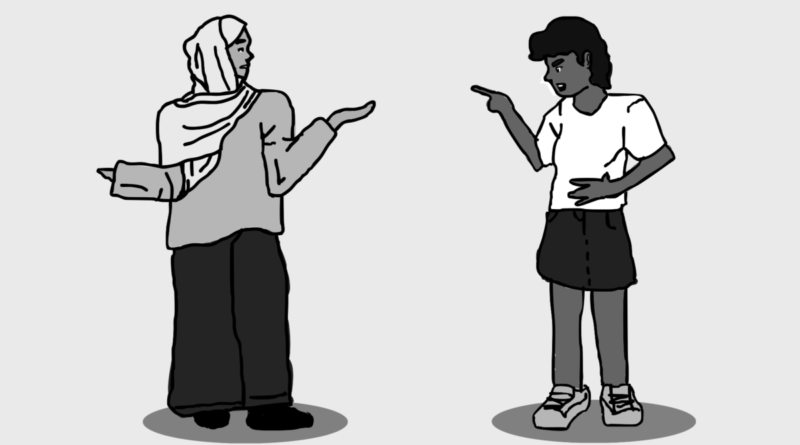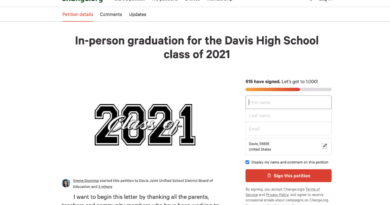Opinion: It’s time to include political discussions in our classrooms
PHOTO: Graphic by Maya Delaney
By Rowan Reising
BlueDevilHUB.com Staff–
Davis High needs to do a better job at addressing political issues, both current, global and local, in the classroom.
I am not saying that teachers should push their own political ideology onto students, but rather hold open forums for students to express their opinions and what they know. Then in review, teachers could hold seminars to show students how to do their own research on the topics and navigate false news.
Teachers are often too worried about being “politically correct” to even bring up topics like religion, sexuality and the political divide. While it is important to stay as neutral as possible to help develop students’ decision-making skills, it’s even more crucial to inform and keep teenagers up-to-date about world issues.
As a junior, I have never taken a government class, which deals with how the governing body works. Exposure to these topics well before senior year would have been very beneficial. Not only would it have helped me form my own judgment surrounding these concerns, but it would have also kept me more informed and empathic to my community.
Applied political literacy is the grounds of sensible diplomacy, which should be emphasized early on in education to help grow healthy governmental discussion.
For example, we all know that health care equality is a major issue in the United States. However, never once have I had a conversation with an educated adult about how it works, what obstacles are in the way, and how we as a society can work toward equitable medical management.
With this knowledge, I could take my own steps to help solve the issue, rather than sitand complain about it without an understanding.
As a society, I believe we consistently overlook and underestimate student voices andthe change we can bring as the youth of the world.
The main reason we go to school in the first place is to expand our perspective and to expose us to diverse views and concepts that we may not see at home.
I do not see this core value reflected in the current school system or its curriculum. Many courses focus on memorization rather than comprehension and critical thinking. While we are forced to analyze old writing like Shakespeare, we could be reading up on contemporary works that illustrate impactful events, and scrutinize the meaning and motivation behind those words.
A common argument made against political classroom discussions is that teachers could be ‘indoctrinating’ the youth.
This, however, has an easy fix: teachers don’t express their opinions but rather facilitate and keep the conversation respectful and on track. They would only provide data from credible sources and only intervene when necessary.
With the next presidential election coming up in November 2024, it is important for educators to address how students can go about researching candidates, registering to vote and voting.
Perhaps this type of education has to be incorporated into curriculum in small quantities. For example, every week, the teacher reads the top political news story and analyzes it with the class, opening up the floor for students to share personal experiences and opinions.
The education and application of political literacy is a dire exigency in today’s society, and the school systems have the opportunity to impart this, provided they implement an appropriate approach.


